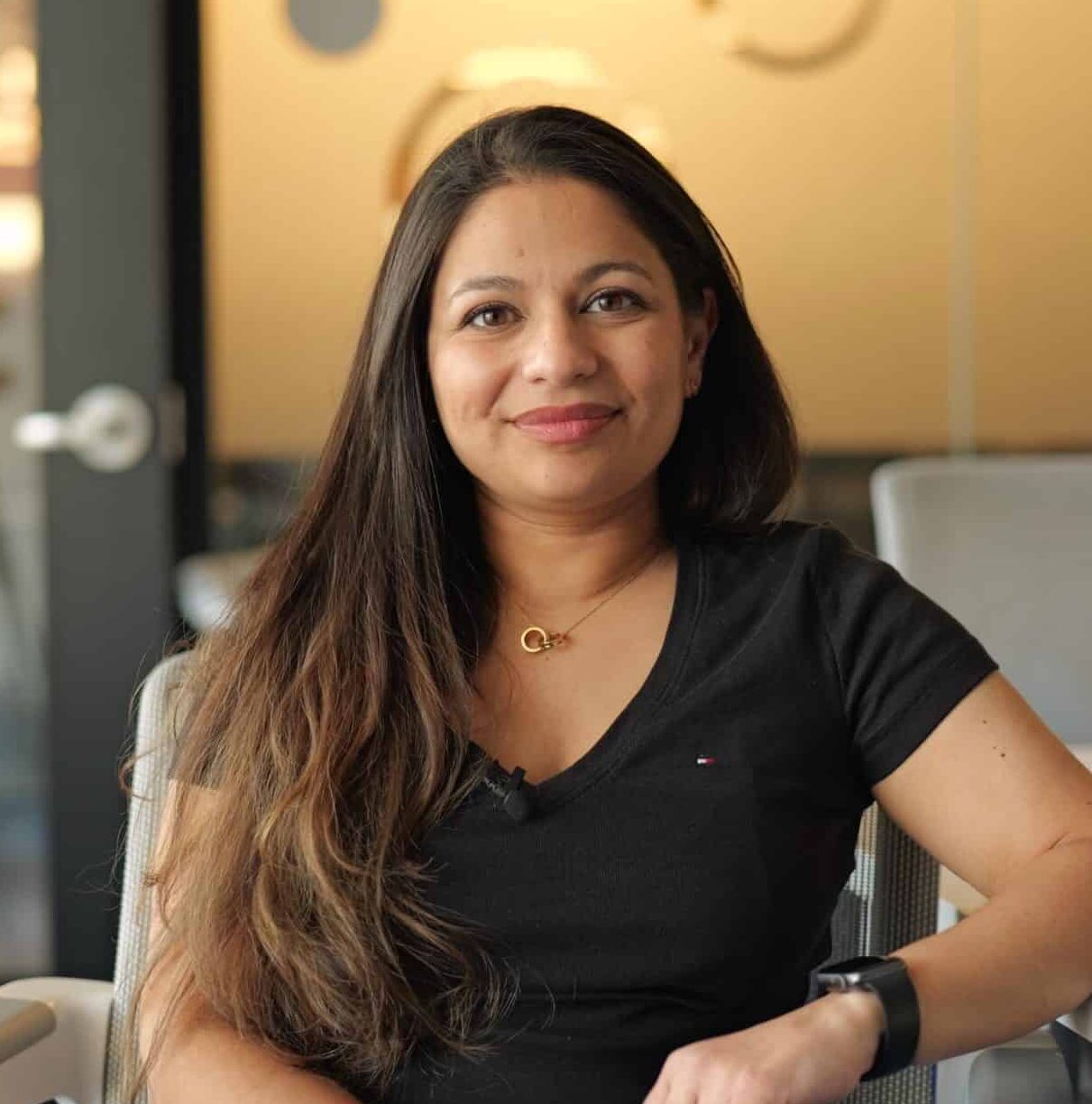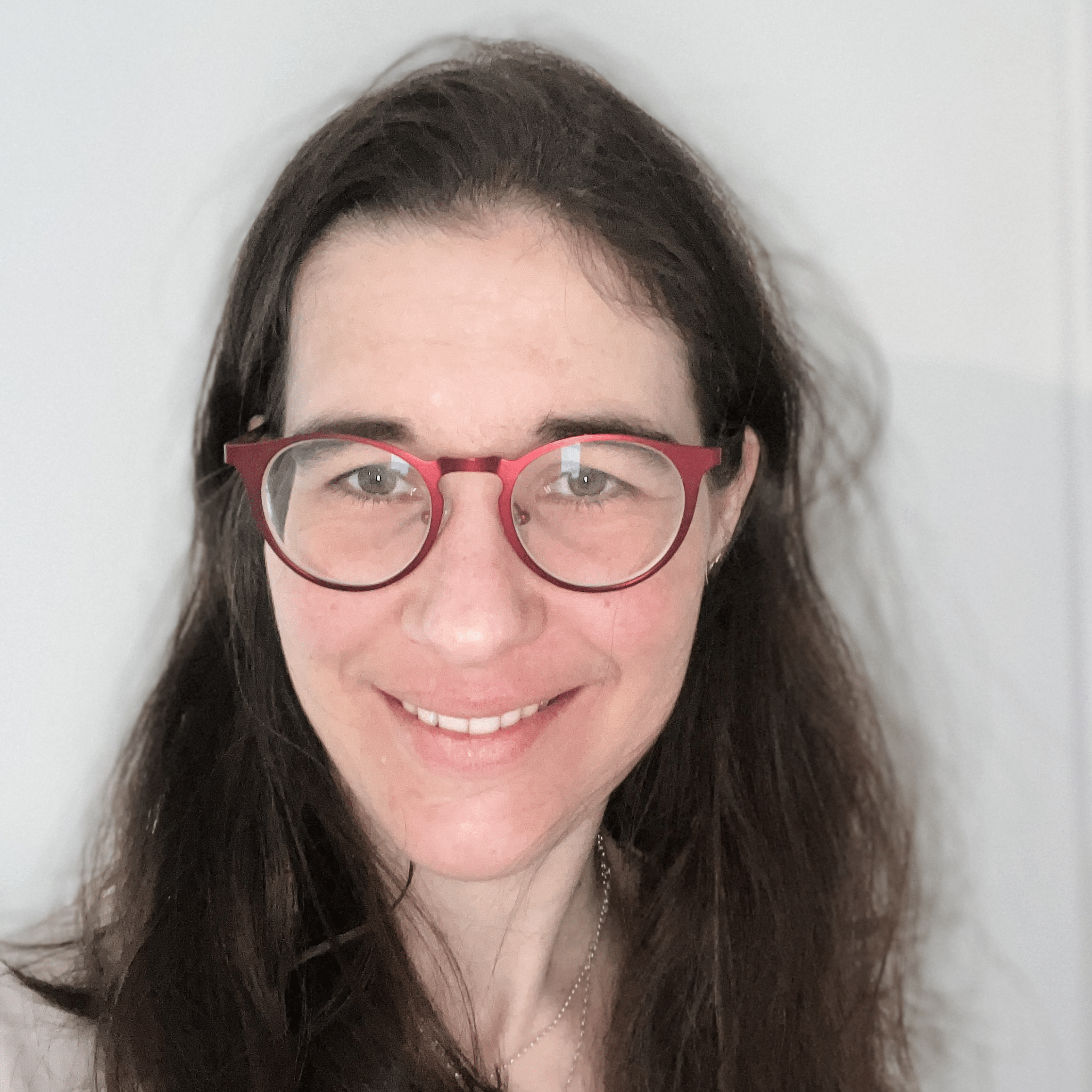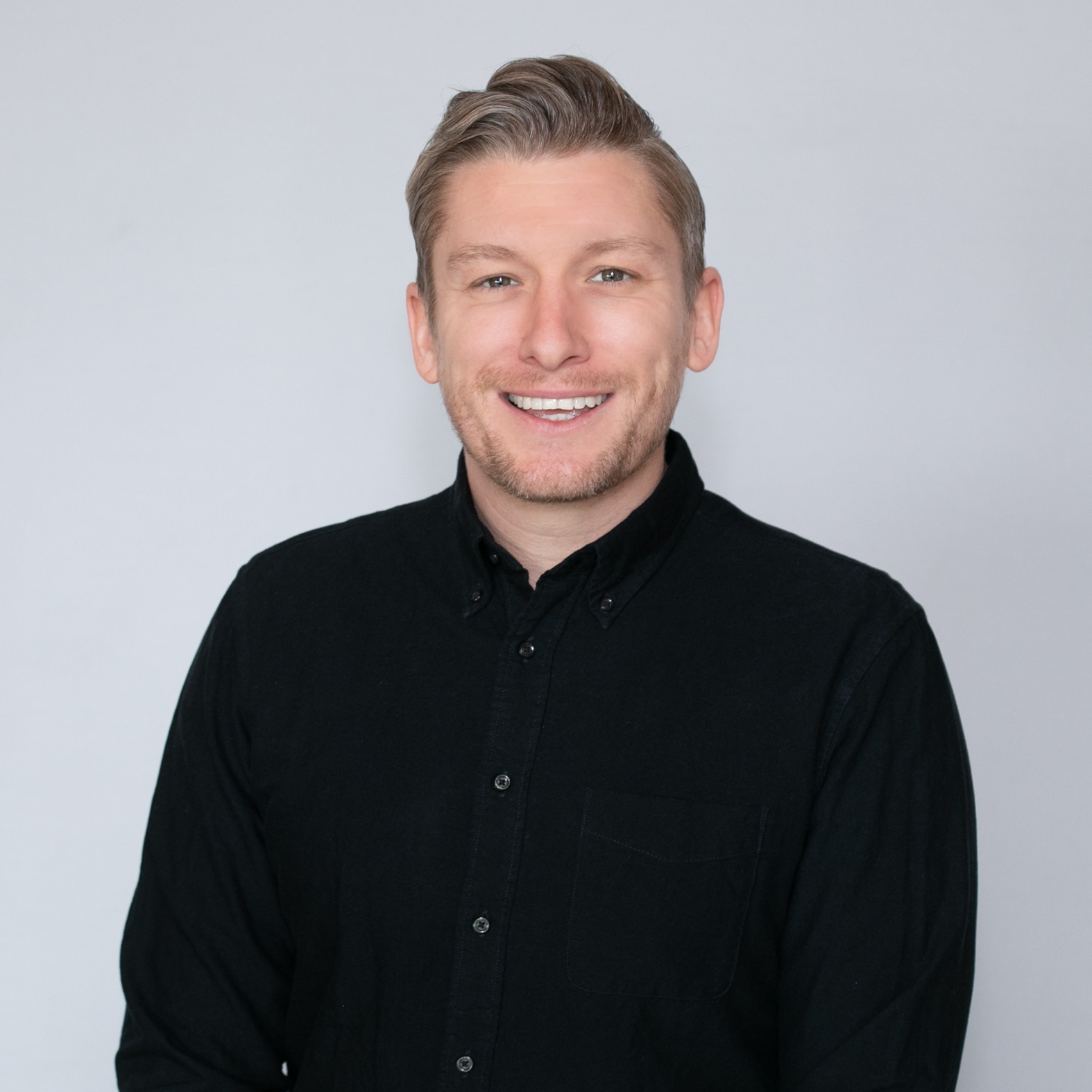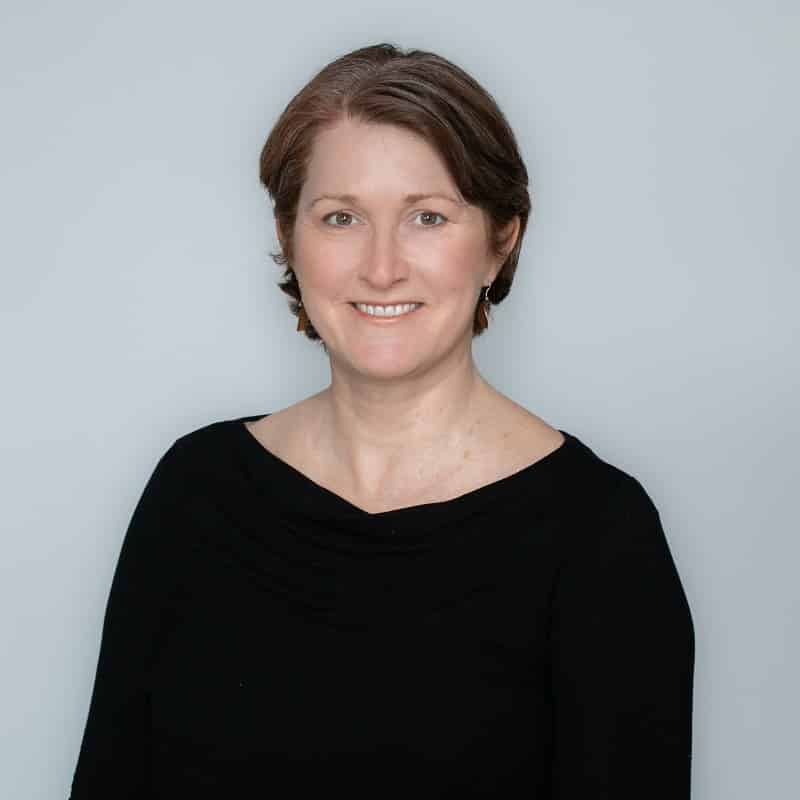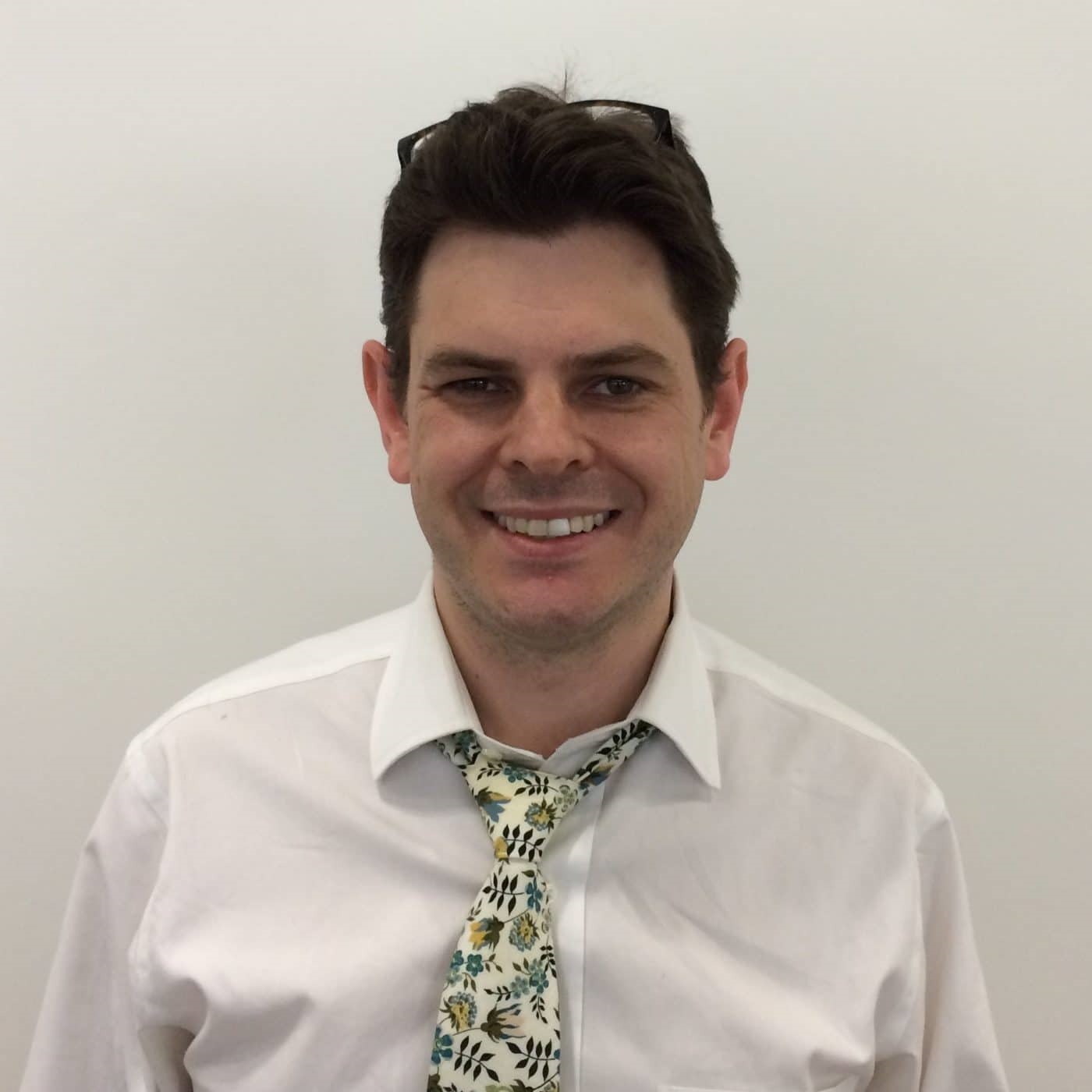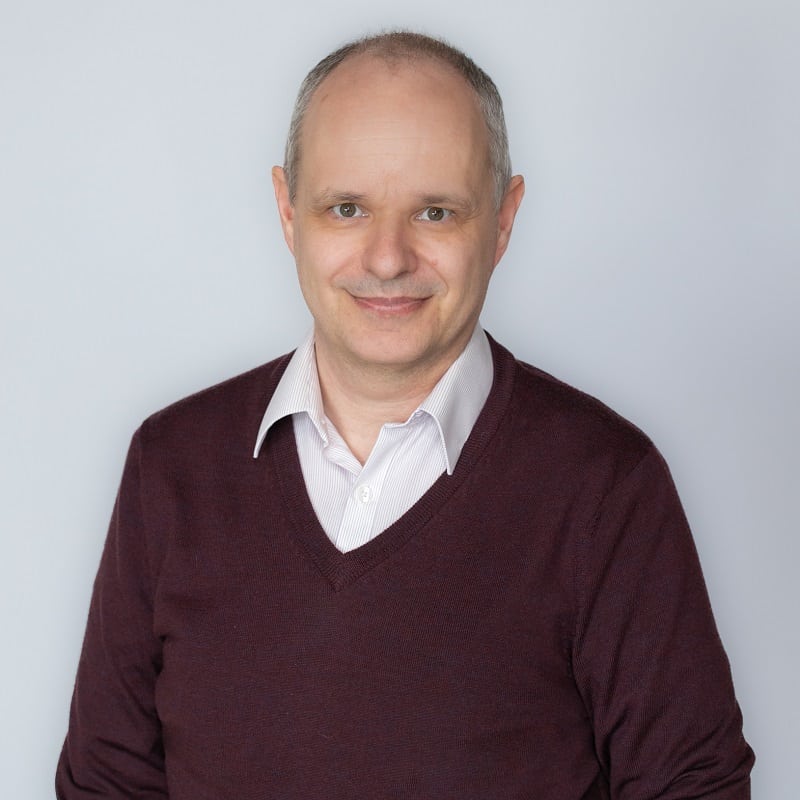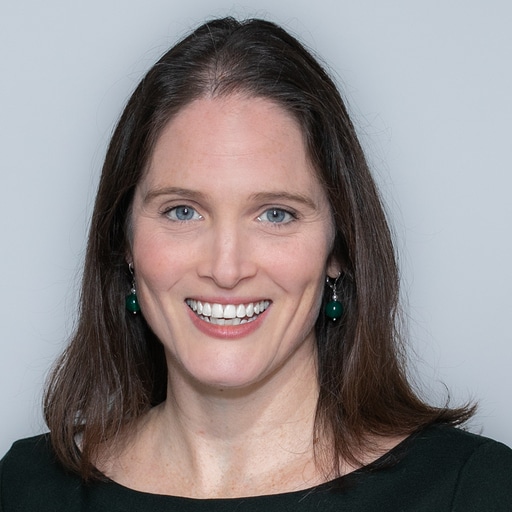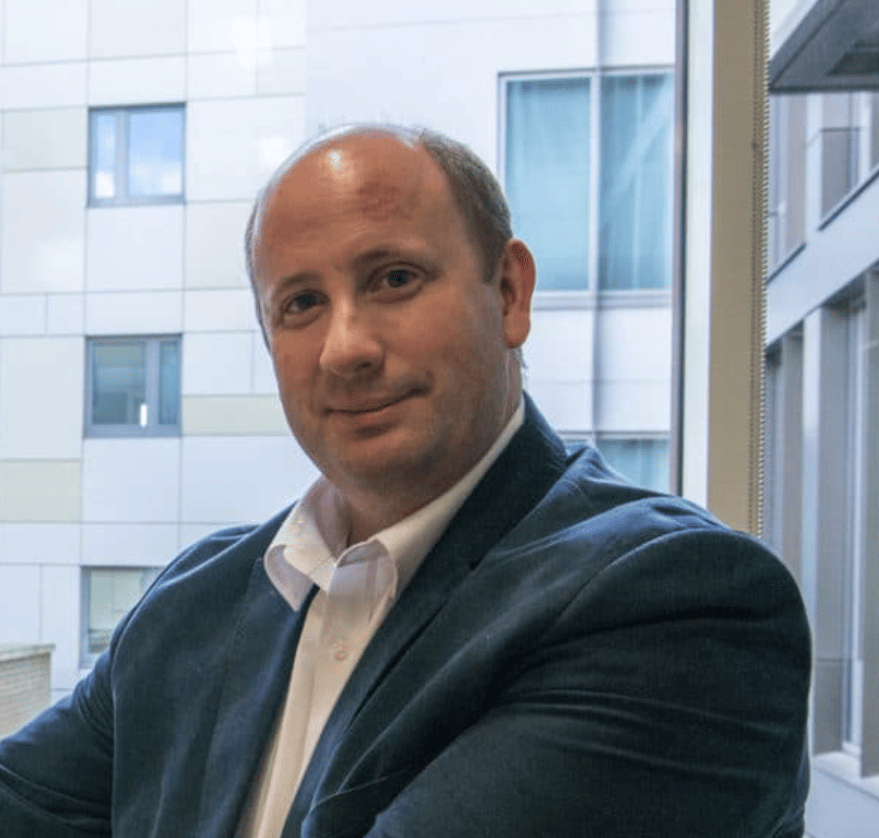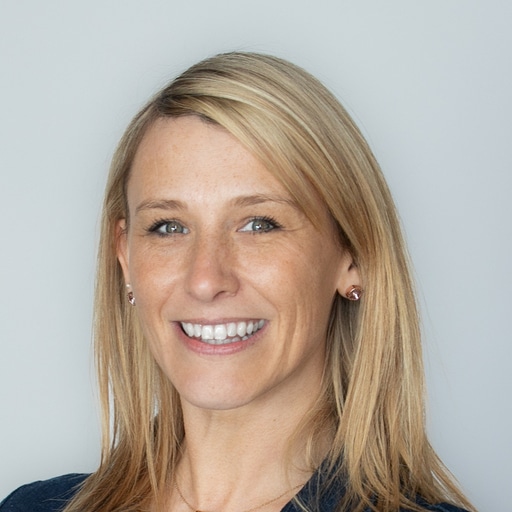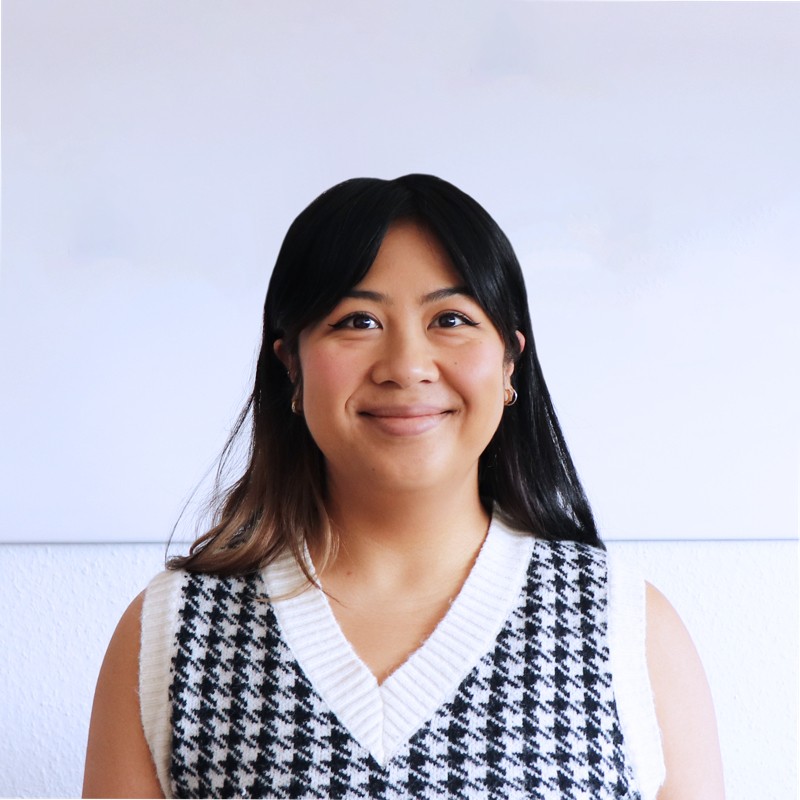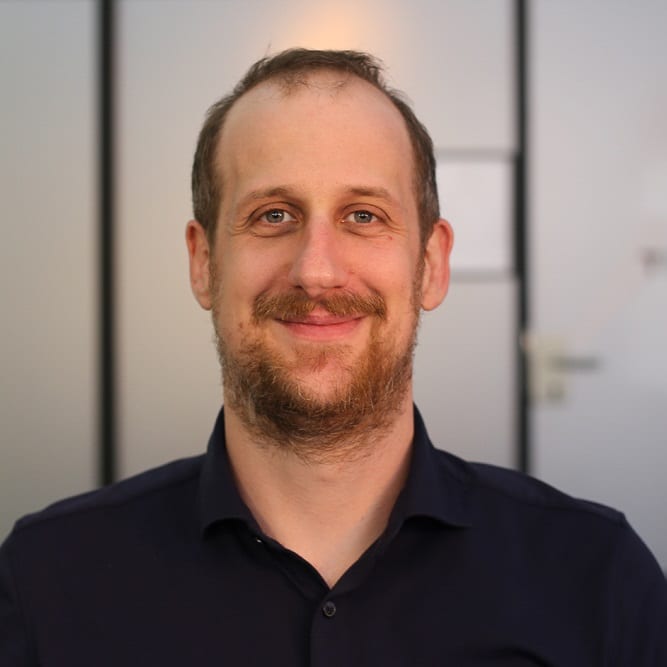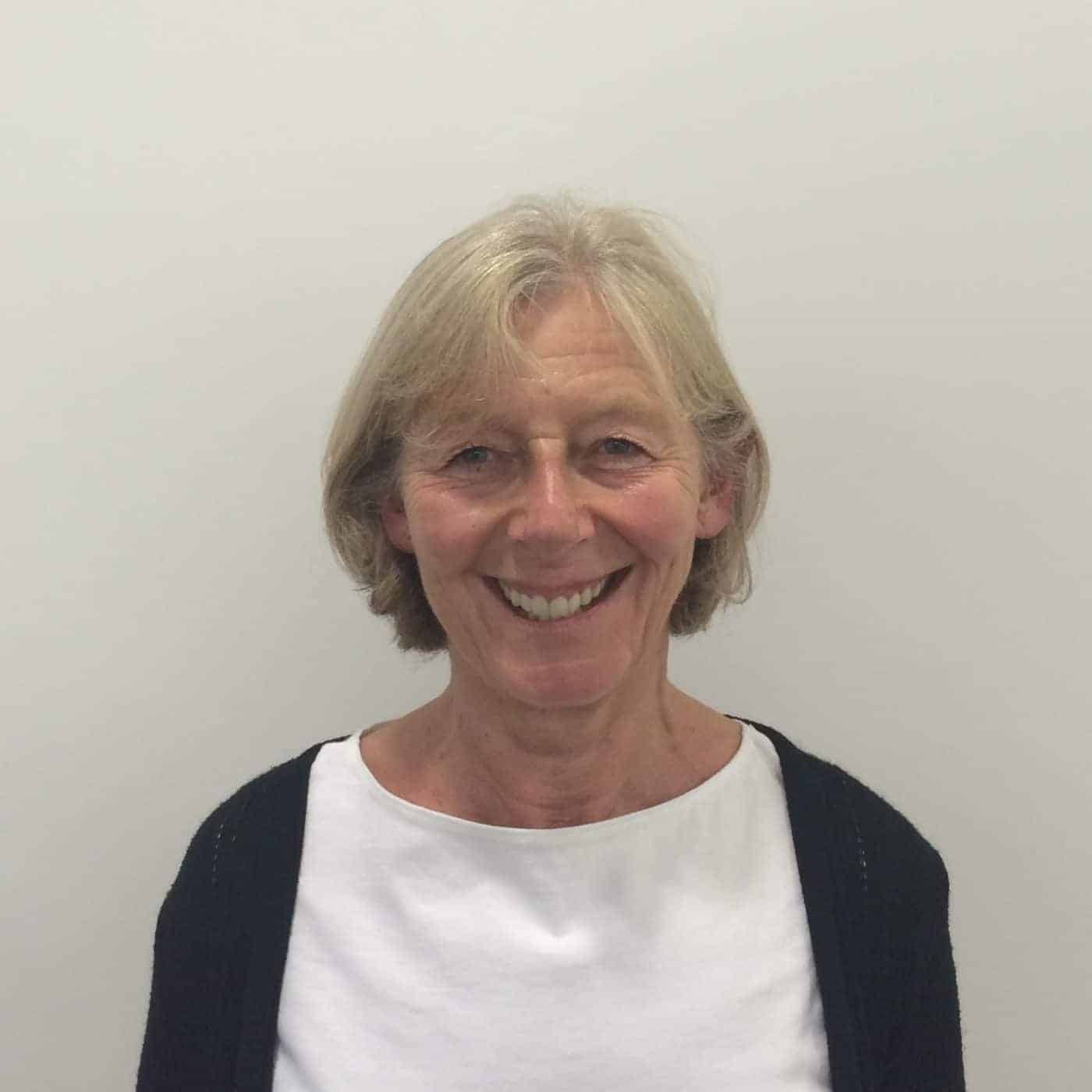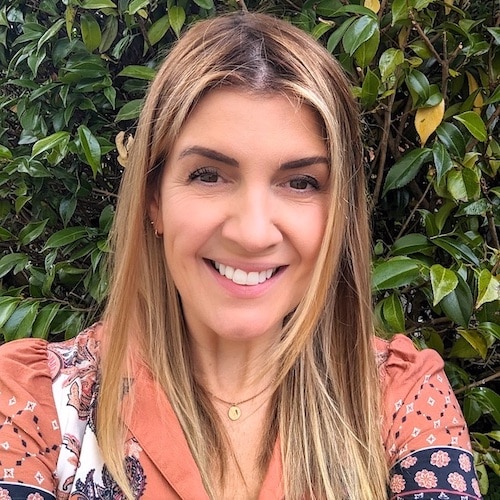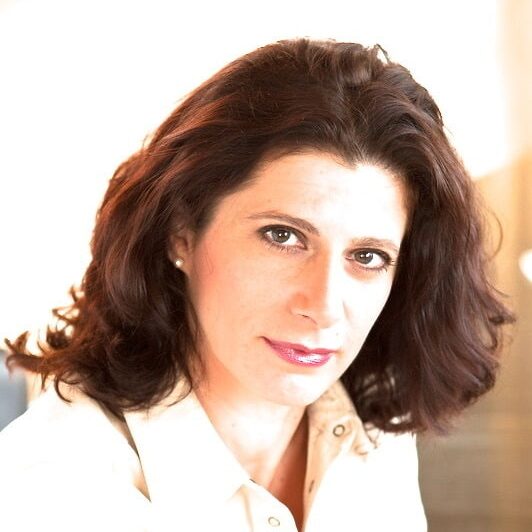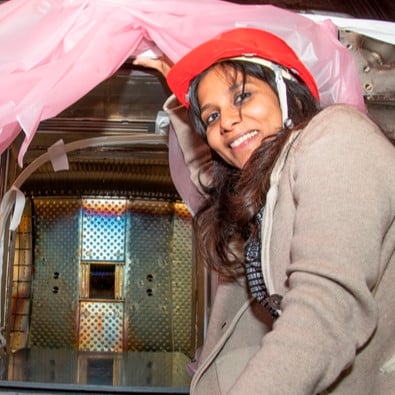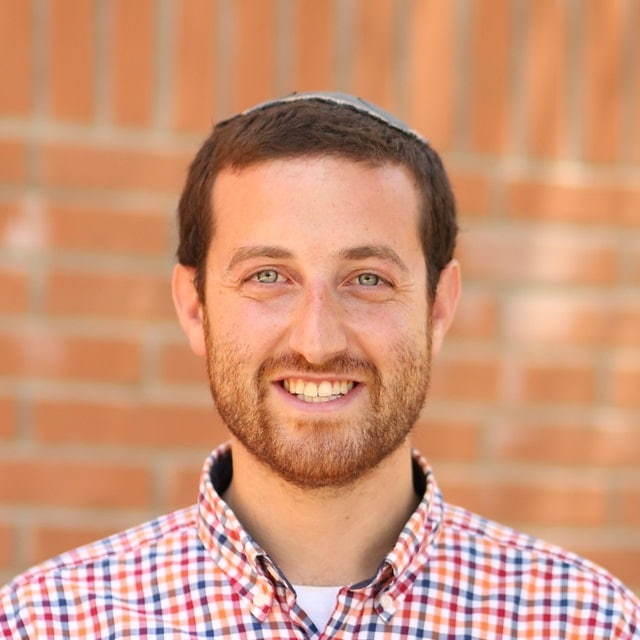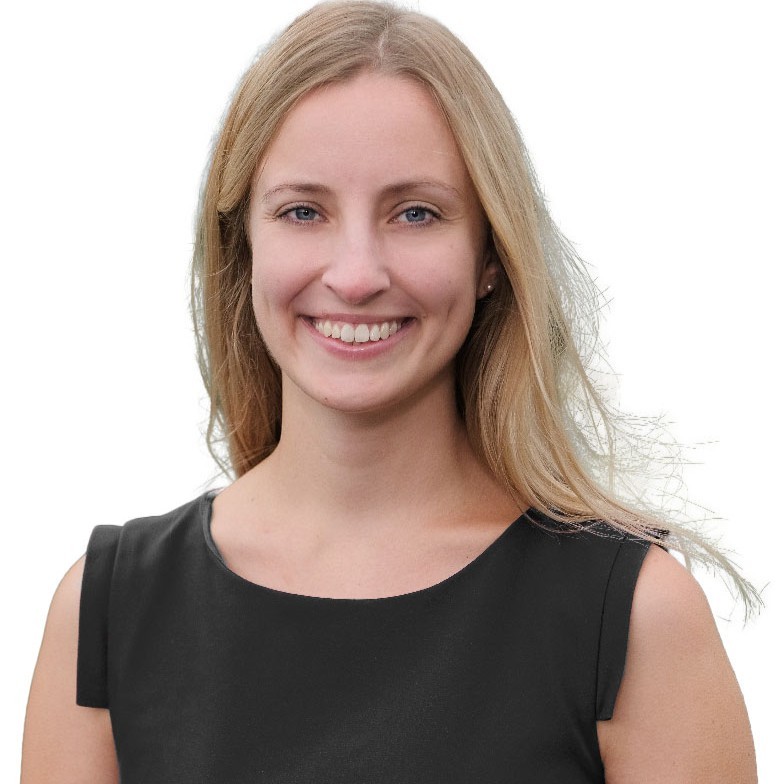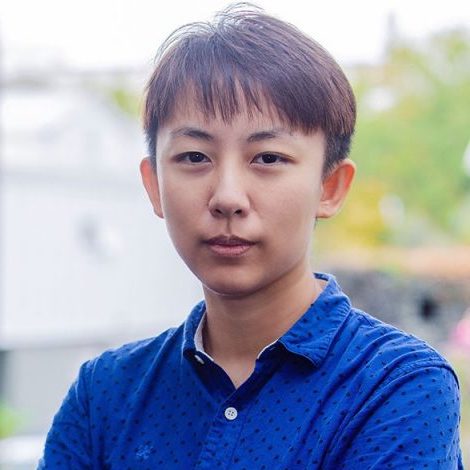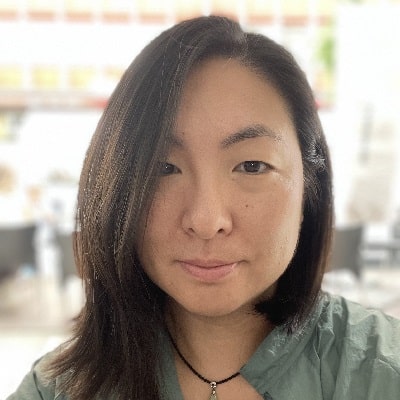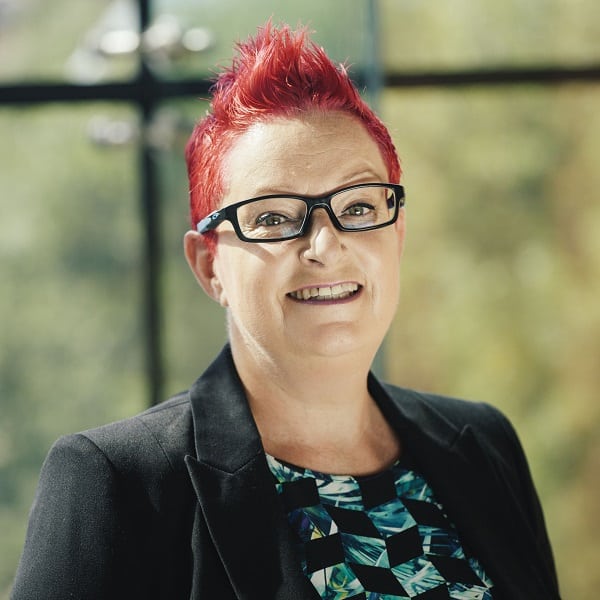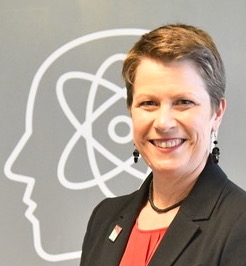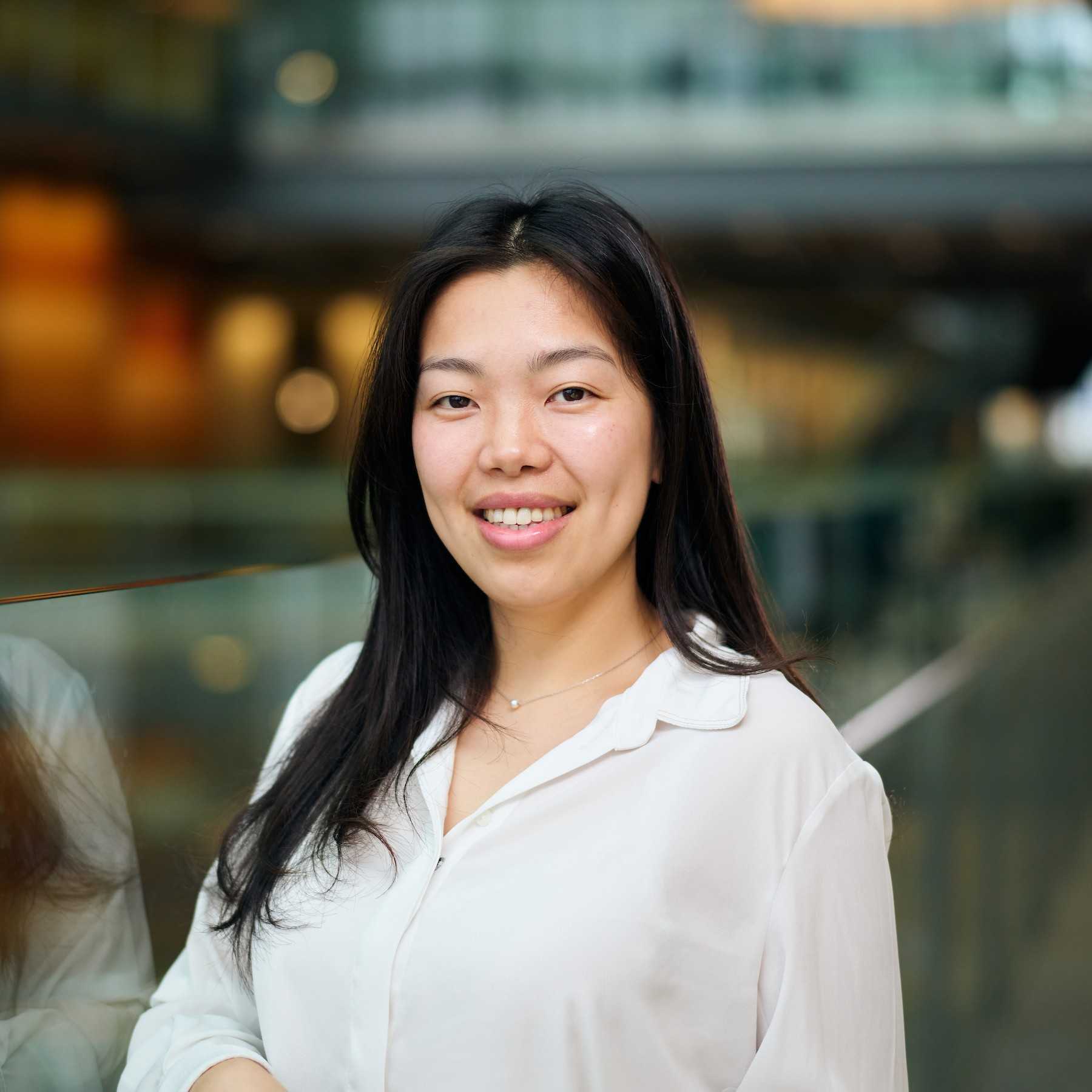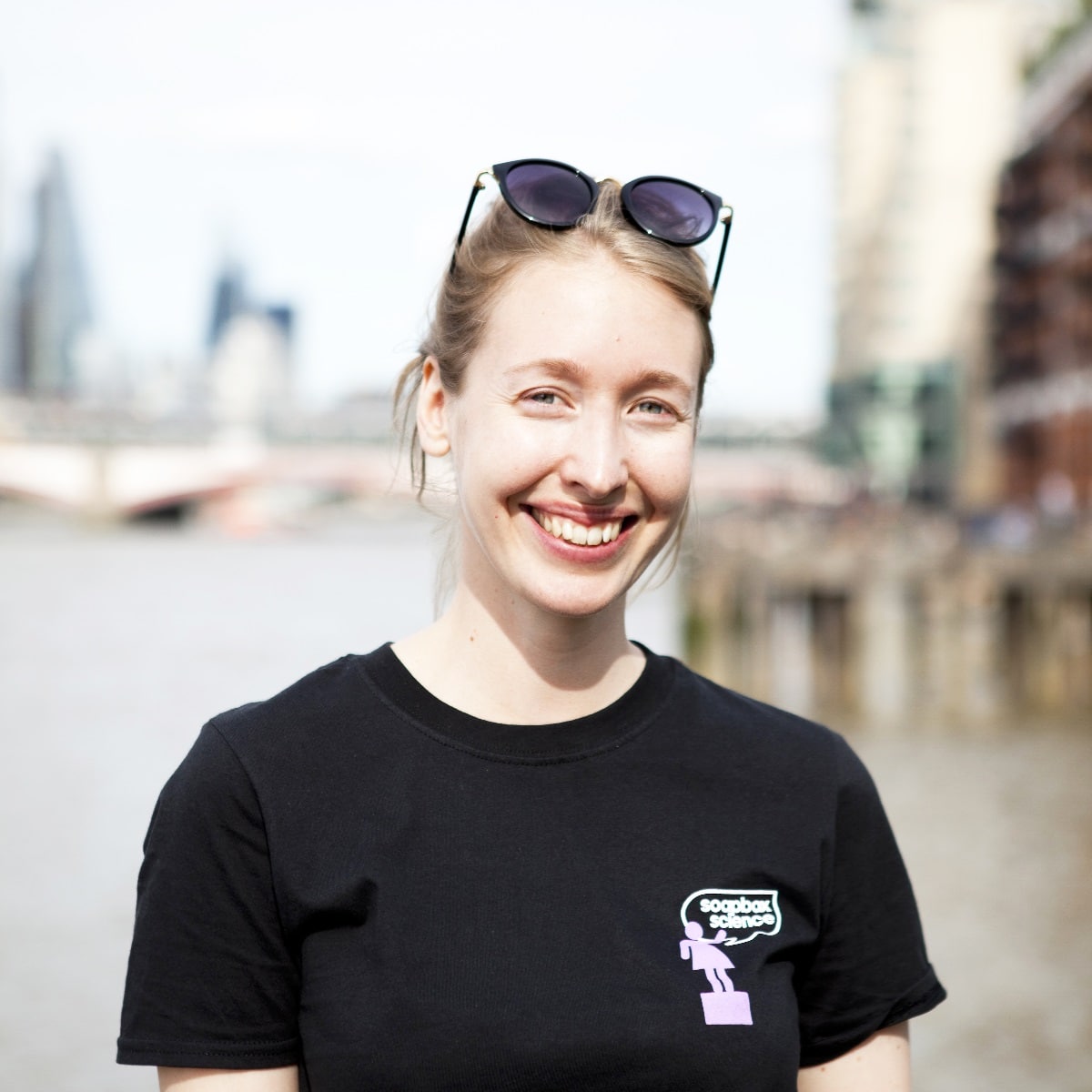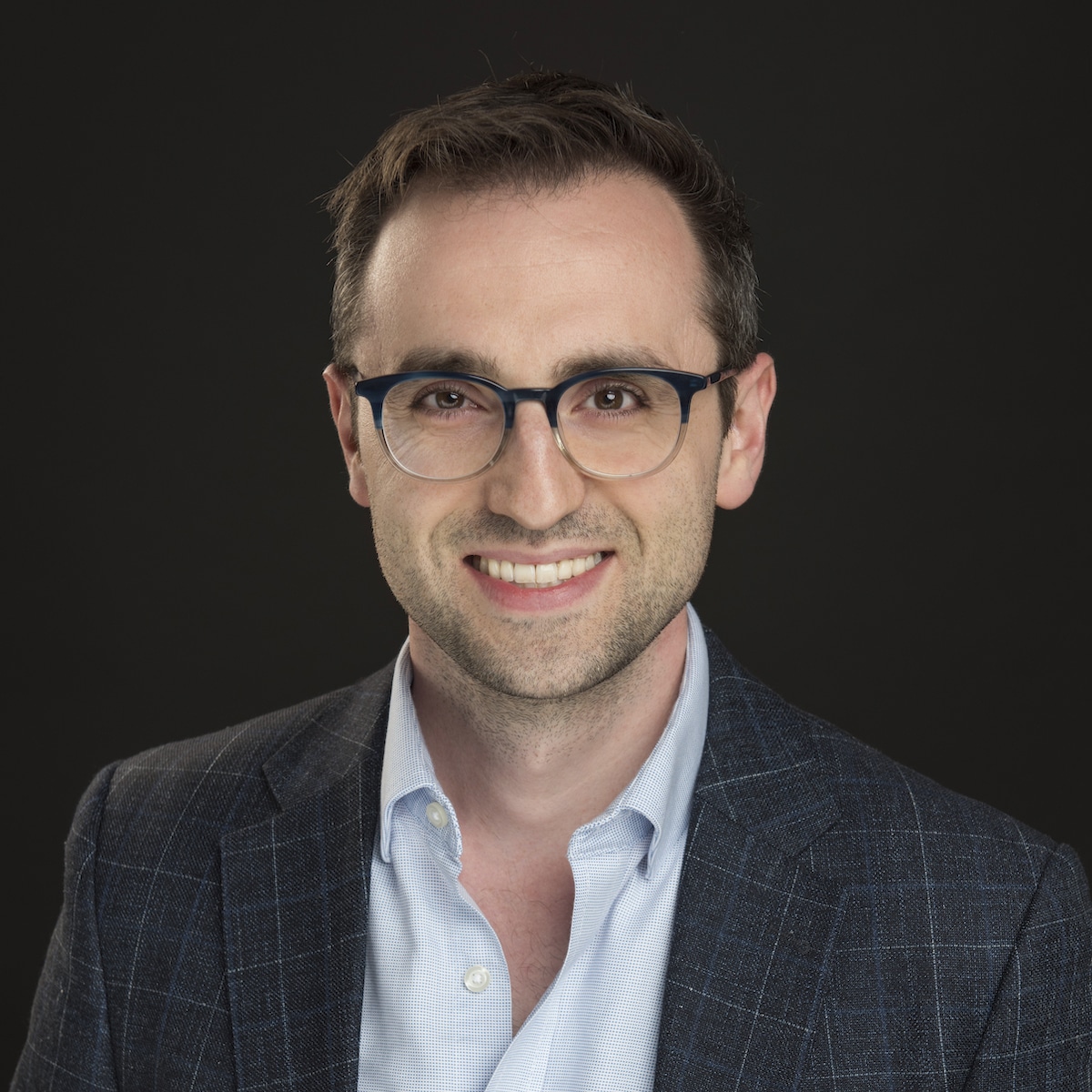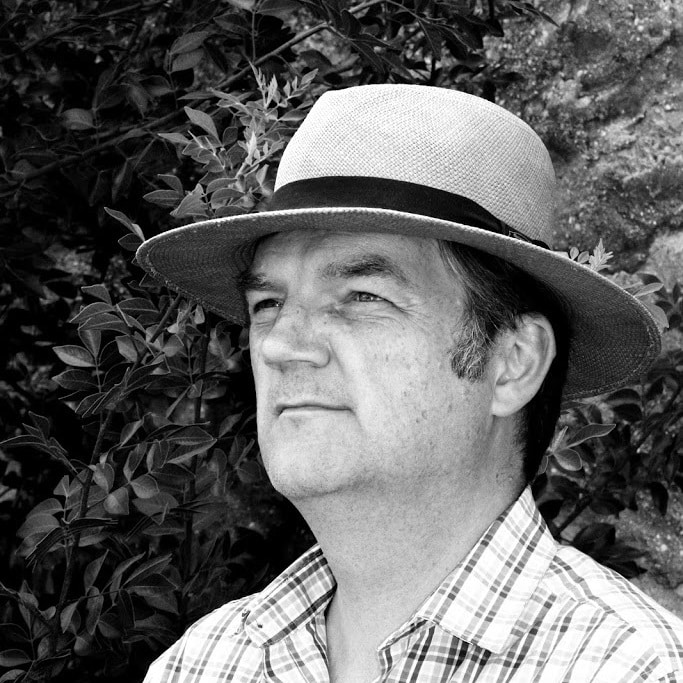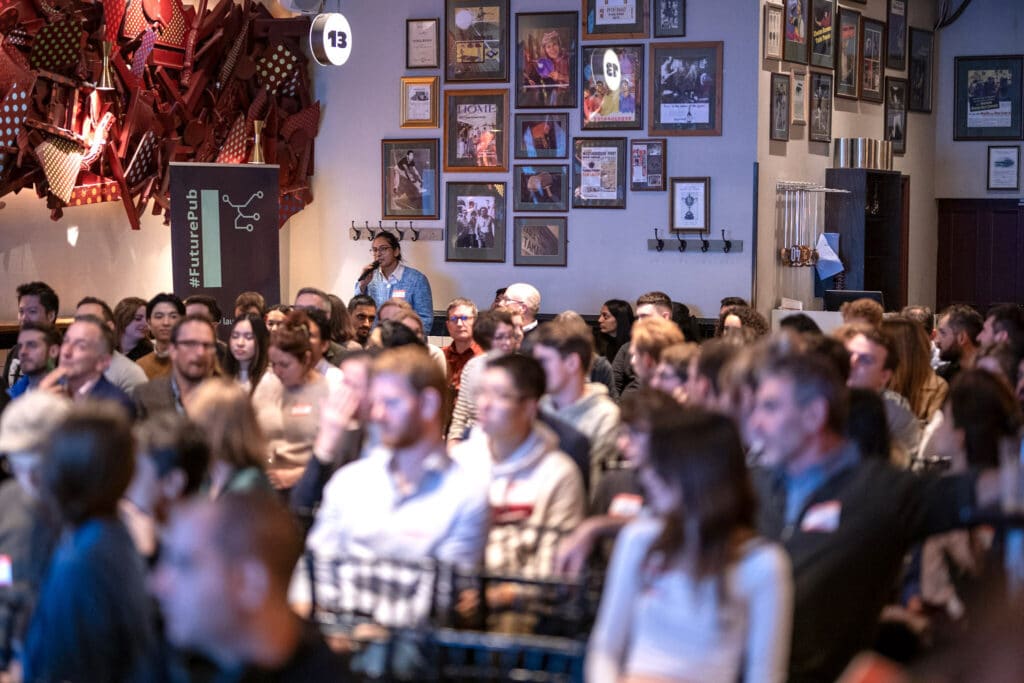
#FuturePub returned to London for our third event of 2023 at the amazing “Bounce” in Farringdon – a ping pong club and so much more. Indeed, as the conversations continued late into the night, with the pizza being passed around and the remaining drinks being consumed, it took us back to some of the very first FuturePubs, which had that same easy-going vibe.
But this one was on a whole new scale! We sold out of our initial 250 tickets well ahead of the event, and around 180 people attended on the night – a new record – with a much wider professional mix of attendees; government representatives, researchers, research administrators, healthcare professionals, publishers, finance & technology experts, and, of course, start-up founders!
Watch our two minute video snapshot of the event below (requires cookies) or directly on YouTube.
We timed and themed this particular FuturePub to kick off some interesting conversations around AI and research – the good, the bad and the ugly – ahead of the UK Government’s AI Safety Summit that took place at the beautiful and historic Bletchley Park on 1st and 2nd November 2023. The Summit was a closed event and has been criticised for a lack of breadth in its participants, but luckily the AI Fringe, a programme of events that we are proud to have been featured in, took place across London and the UK all week, with a range of exciting events open to all that gave everyone the opportunity to discuss developments in AI and its impact on society.

The atmosphere
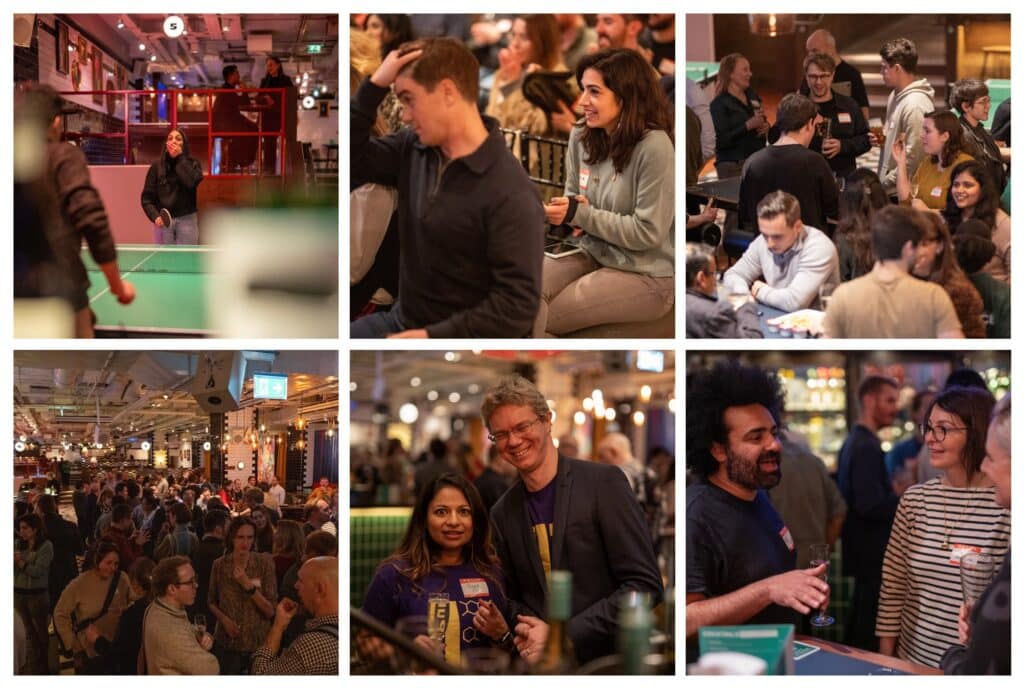
It’s hard to put into words the atmosphere at a FuturePub event – the excited buzz in the room, the hubbub of conversations going on all around, and the relaxed, unpressured, informal-yet-stimulating feel to the evening. So you should definitely watch the video!
Perhaps the best examples of capturing the moment in words are Ian Mulvany’s blogs, which he writes immediately after these types of events and which represent his immediate thoughts and reactions at the time.
“I attended FuturePub last night, actually, I also spoke at it too. I love these events, I’ve attended a ton of them over the years, and last night’s was in association with AI fringe, so there was a nice ad-mixture of different communities, and I got to chat to some folk that I wouldn’t otherwise have met. A really good event, many thanks to Digital Science.”
Ian Mulvany, from his personal write up of the event[1]
And as Ian says, he was not only an attendee but also a speaker – which brings us nicely onto…
The lightning talks
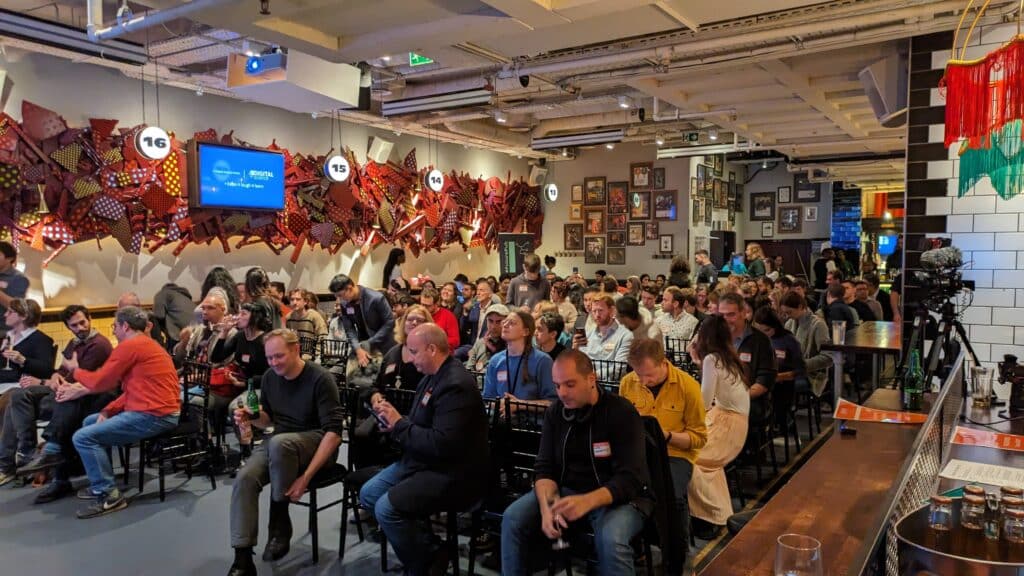
At #FuturePub, the format remains largely unchanged – once everyone has arrived and had the chance to relax and grab a drink and some nibbles, we get together for the lightning talks.
The format of the talks at #FuturePub is very simple – each speaker gets five minutes to speak with or without slides, followed by five minutes of audience questions. And, if their talk runs over, it comes out of their question time! This lets us fit six amazing speakers into an hour slot and also adds a little spicy sprinkling of jeopardy to proceedings, which our speakers invariably navigate with humour, grace, and occasionally the odd swear word!
Andy Dudfield – What happens when AI meets facts?
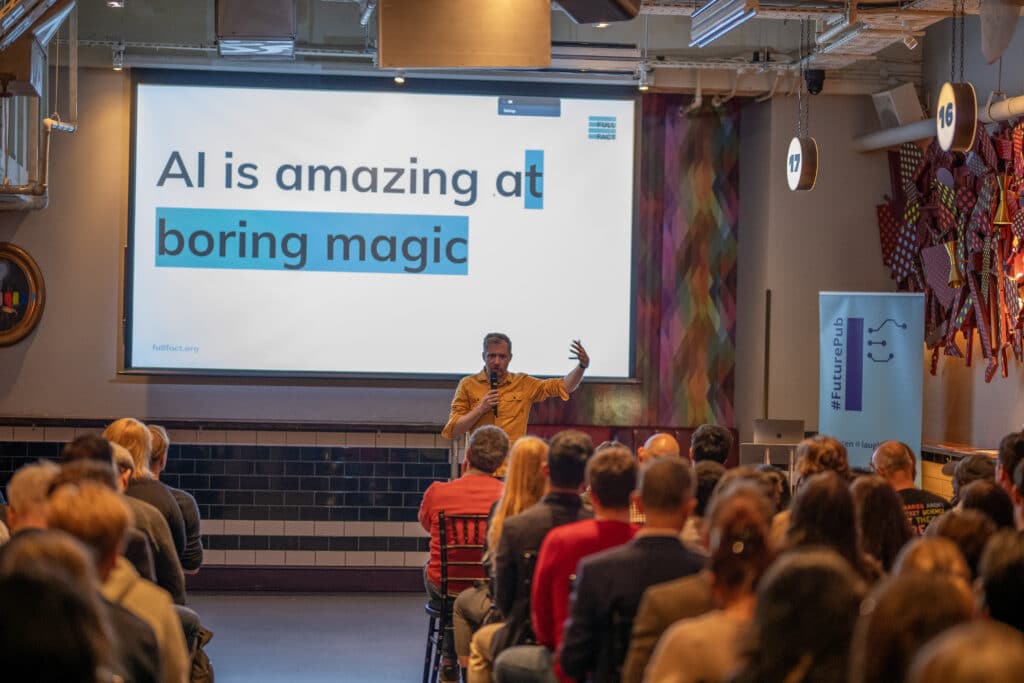
Andy Dudfield, Head of AI at Full Fact, kicked us off with a very quick overview of what fact-checkers around the world are doing with AI. He described how he and his team are finding AI useful in helping them prioritize what they should look at to fact-check, which is more important than ever given the sheer volume of people and content they would otherwise be swamped with. His talk prompted questions on both the tech stack they’re using (which he gave a run-through of) and also what he sees as the challenges ahead.

Find out more about how Full Fact uses AI and if you’d like to get involved read more about a number of suggestions around how you can help.
Daniel Hook – Specificity versus synthesis: An uncertainty principle for Large Language Models?
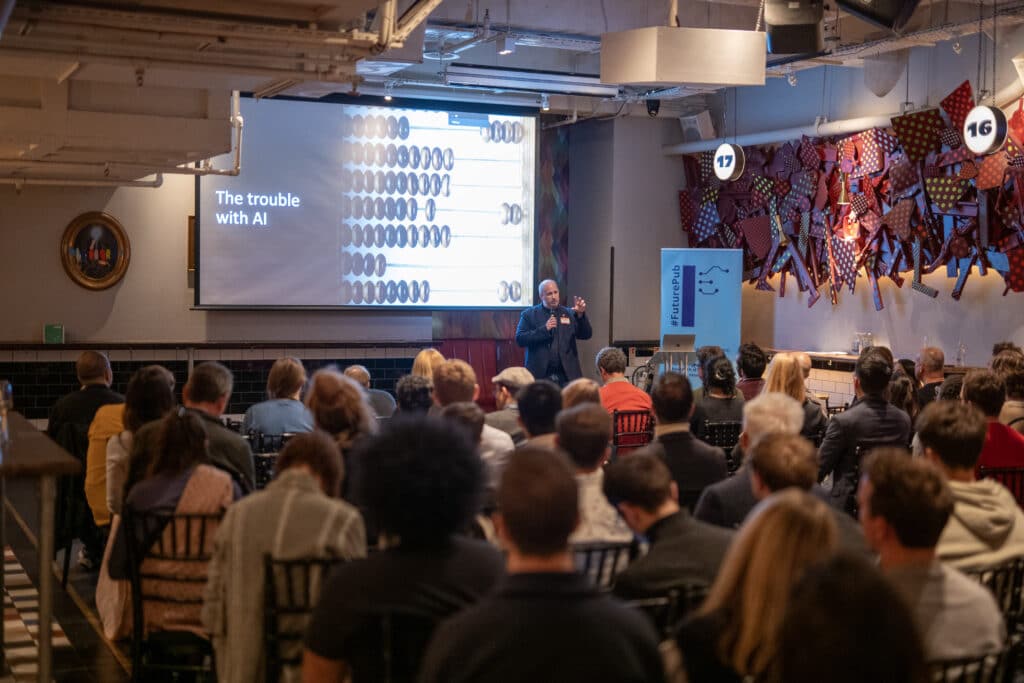
Following Andy, we heard from our good friend and CEO of Digital Science, Daniel Hook. Daniel is one of the founders of Symplectic and has been instrumental in Digital Science’s growth over the past decade, but at heart, he still very much considers himself a theoretical physicist which, given he still holds visiting positions at Imperial College London and Washington University in St Louis, seems entirely justified! If only he told people about being a physicist once in a while… 😉
Daniel approached his talk topic through the lens of his theoretical physics background – whilst he has recently written on specific topics in generative AI, here he focused the discussion at a higher level, on Large Language Models and how they are known to hallucinate facts. He observed that:
“While there is an active debate on whether this is a bug or a feature, the fact remains that we don’t understand AI to the level where we can get LLMs to trace back to their motivation for making a specific pronouncement.
Daniel Hook, speaking at #FuturePub London, October 2023
Thus, LLM providers who work in the science space are faced with a challenge – they want to leverage the new capabilities of LLMs but need somehow to create references back to the original work, but in forcing an LLM to work in a way that creates referencability, one destroys its ability to create a synthesis from multiple sources, creating a fundamental playoff between specificity and synthesis.”
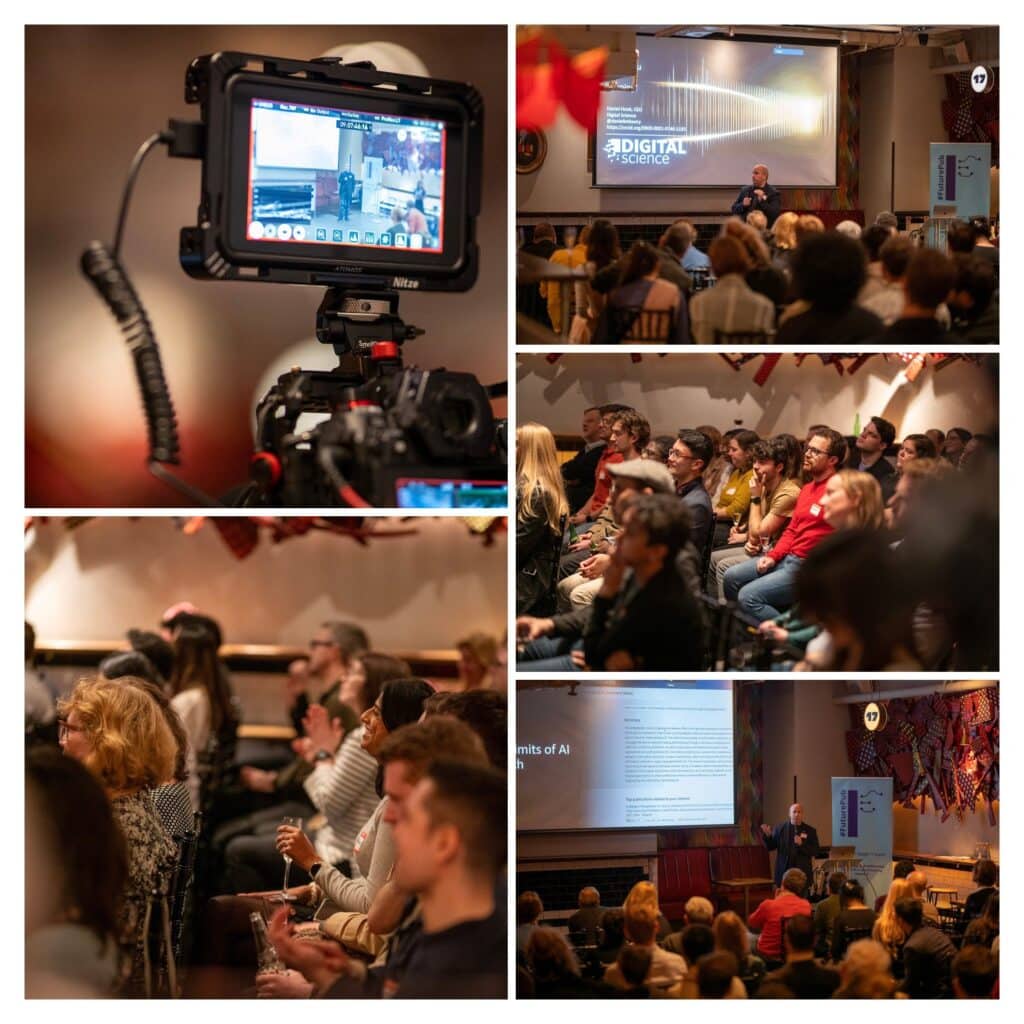
You can read more from Daniel on our TL;DR site, where we have a number of articles on AI, or visit our resources page to find out how Digital Science and Dimensions have been using and adapting AI tools in the research space.
Natasha Punia & Damien Posterino – Inclusive Innovation: Leveraging AI to Empower Marginalised Communities into Employment
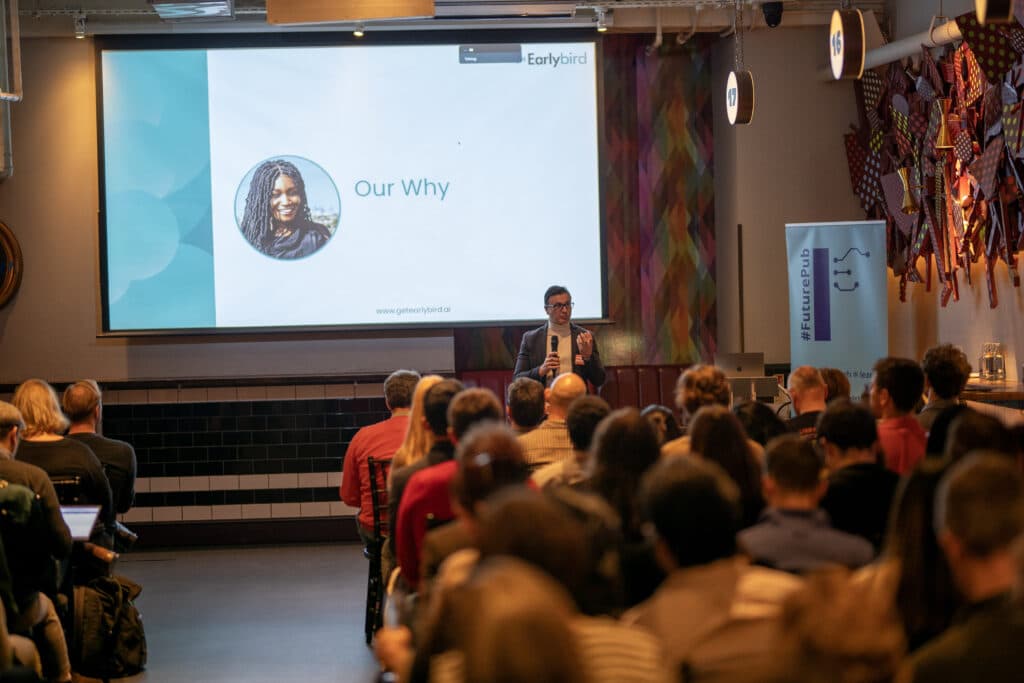
Our next talk from Earlybird – an exciting start-up leveraging AI to help support employment opportunities, especially for under-represented demographics – was due to be a joint effort between Damien Posterino and Natasha (Tash) Punia (who was formerly the Head of Operations at Figshare!). However, due to a last-minute change of plan, Damien presented by himself, and did a great job in conveying Earlybird’s origin story, goals and progress to date in just five minutes.
Earlybird founder Claudine Adelemi was featured in their talk as “Our why”, and her background and experiences are worth reading up on. She recently won a #Thrive20 Award for success in business and a celebration of female entrepreneurship and social impact, and Earlybird definitely looks like one to watch.
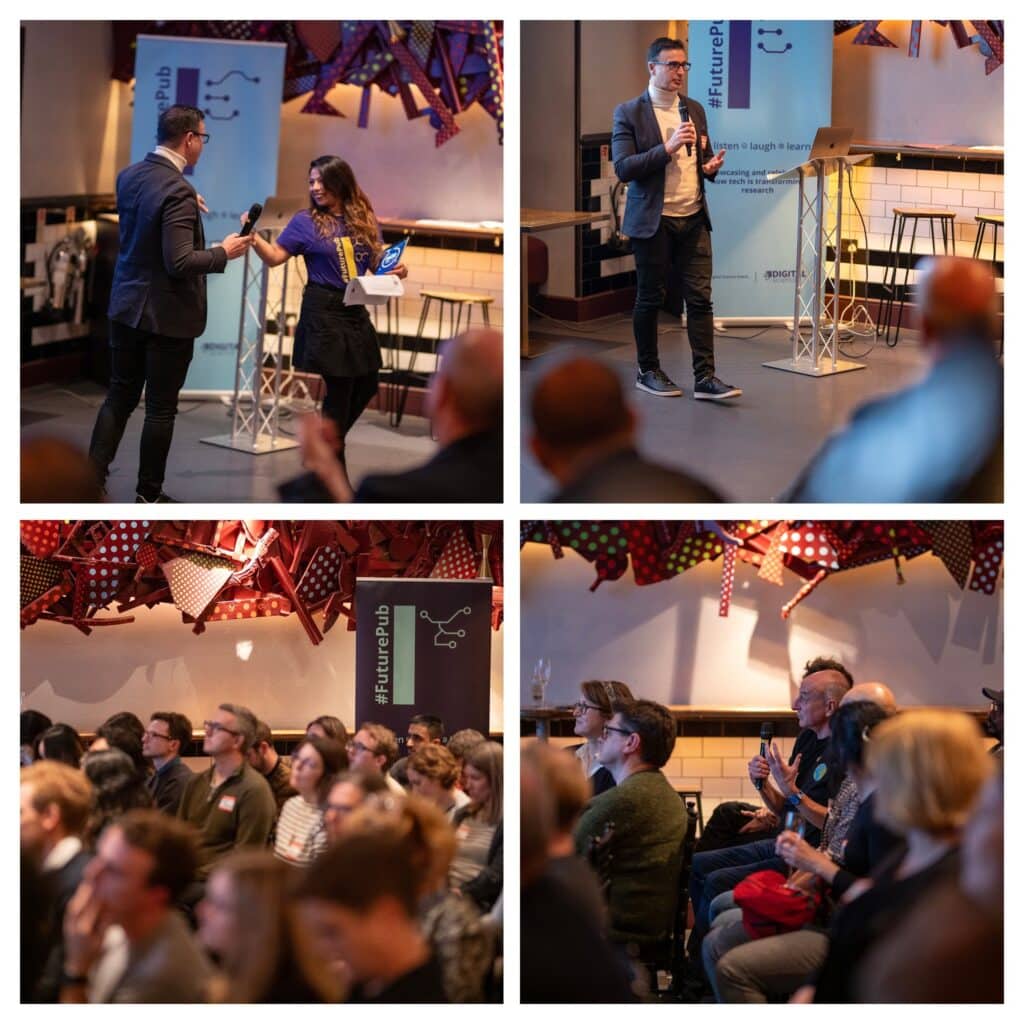
Speaking with Tash after the event, we were also struck by how much effort such a relatively small start-up is putting into helping the communities they serve – for example, in how they are working directly with refugees both to get feedback on their platform but also to give the refugees credit for working with Earlybird. The refugees can then include this on their CVs to increase their chances of securing employment in the UK. It is rare to see such thought and consideration given to those invited to take part in user feedback sessions, and is a testament to Tash and the team’s desire to do good. You can find the latest from Earlybird on their website.
Nikos Tzagkarakis – Hierarchical Representations: From Space to the model of Self
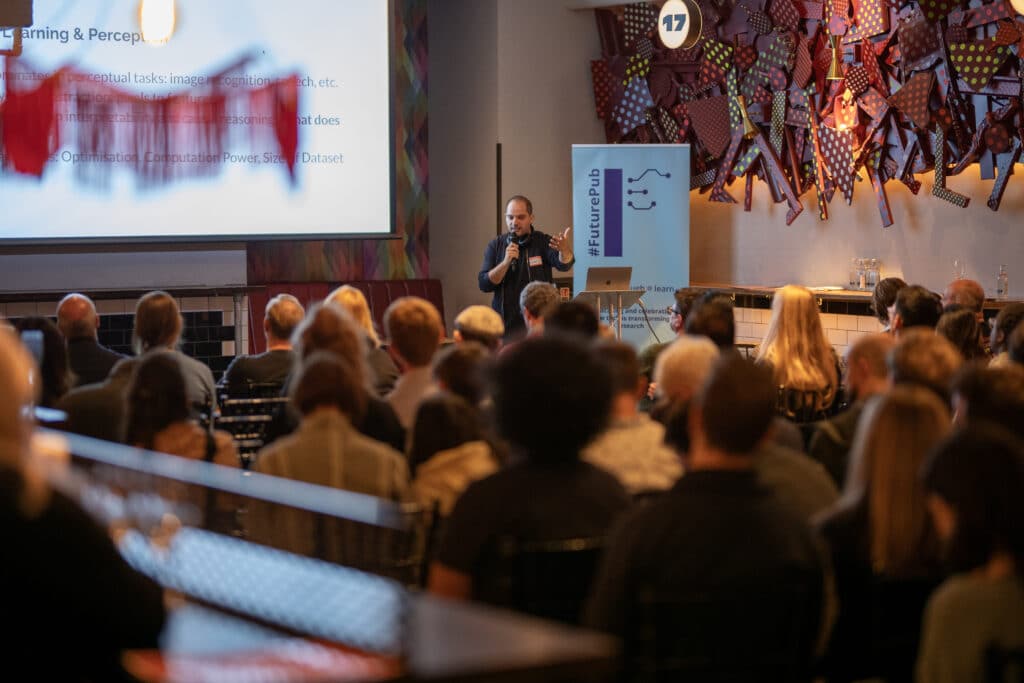
Nikos, Chief AI Officer at SiSaf, is well known to Digital Science – he won a Digital Science Catalyst Grant in 2019 and recently recorded an interview with Suze where he talks about the experience. He is also clearly no stranger to experimenting with AI, and throughout his talk conveyed both his passion for it and his technical expertise.
The focus of his talk was on cognition; a capability still beyond the current approaches to AI and their applications, where the big recent improvements have been primarily in perception. He argues that the current deep learning approaches lack the fundamental hierarchical representation required for cognition, but he was optimistic about the potential. He focused on three examples – Healthcare, Space Navigation and Conscious-like Agency, where cognition becomes increasingly important.
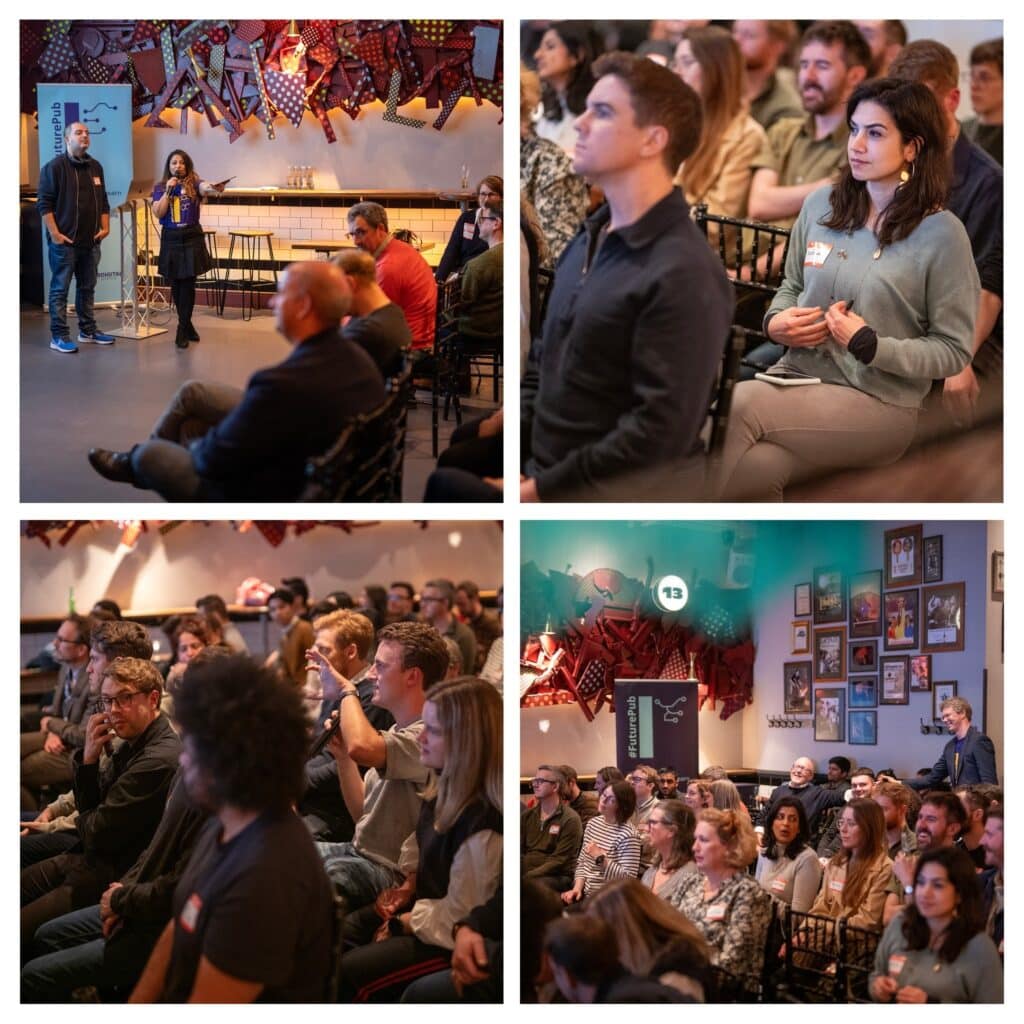
Find out more about Nikos and his work on his personal website, or reach out to him on LinkedIn.
Ian Mulvany – An open discussion on implementing LLM governance
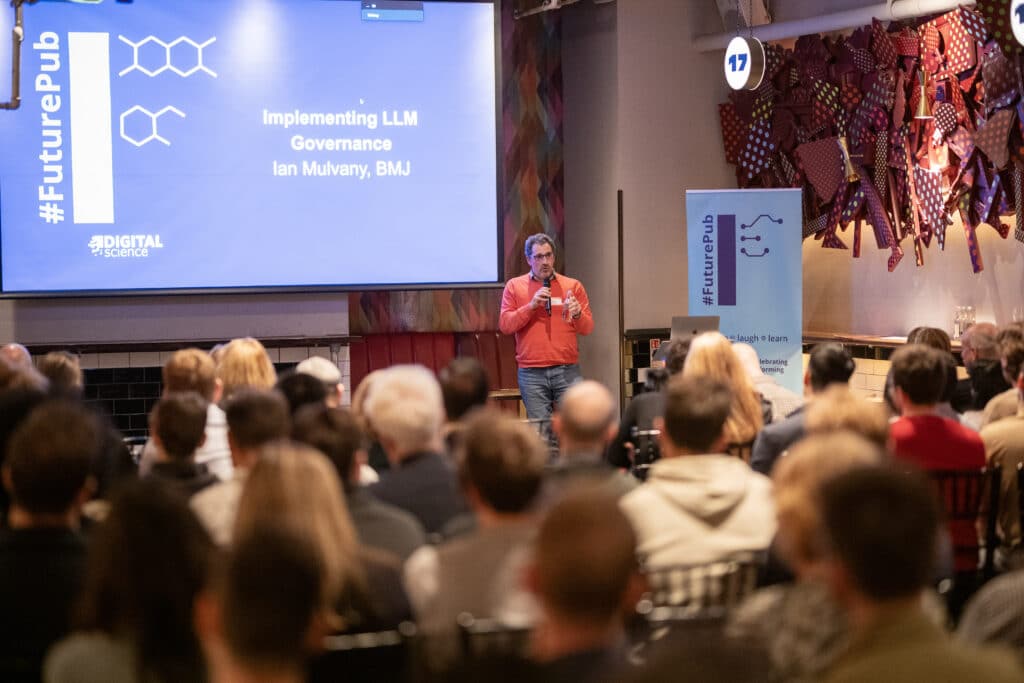
Those who read the opening sections of this blog post will have already seen a quote from Ian, where he talked about his enjoyment of these events. Ian should know all about it – he’s been a long-time attendee, and you can even spot him in the photos from our very first FuturePub back in 2014!
Ian, who is CTO at BMJ, shared some of his insights from the approaches the BMJ is taking to AI governance in a world of large language models. He encouraged an open discussion and got things started by briefly explaining the LLM governance group they’ve created at BMJ that works on reviewing use cases and aims to support LLM use in a responsible, fair, and safe manner. He asked the audience “Are we doing it right? What are others doing?”, and in his write-up after the event noted:
“I had good feedback on BMJs current approach, and one great suggestion from the floor was to think about how to actively create the space to hear and listen to weaker voices inside the organisation.”
Ian Mulvany[1]
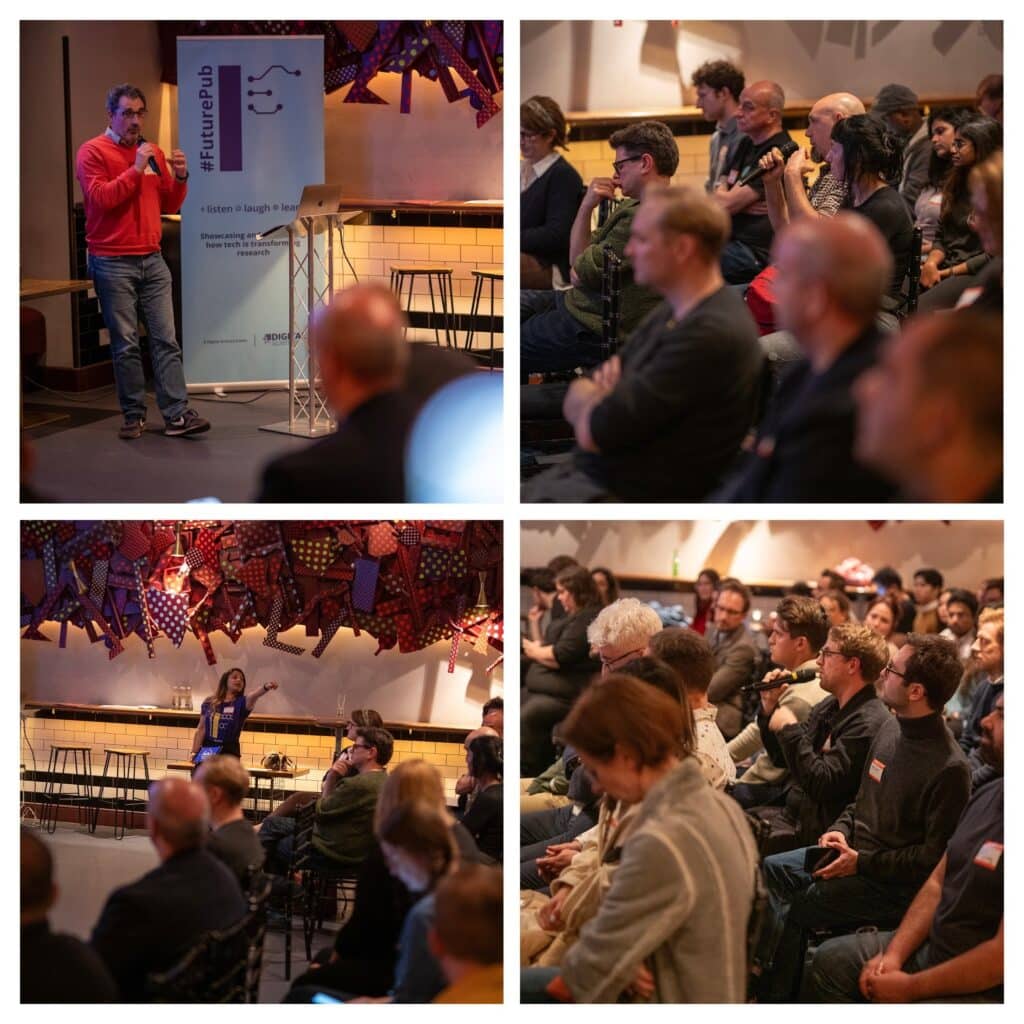
Ian regularly writes on a variety of topics on his personal blog. If you’d like to get in touch you can find him on LinkedIn.
Carl Miller – The shifting terrain of power in the age of AI
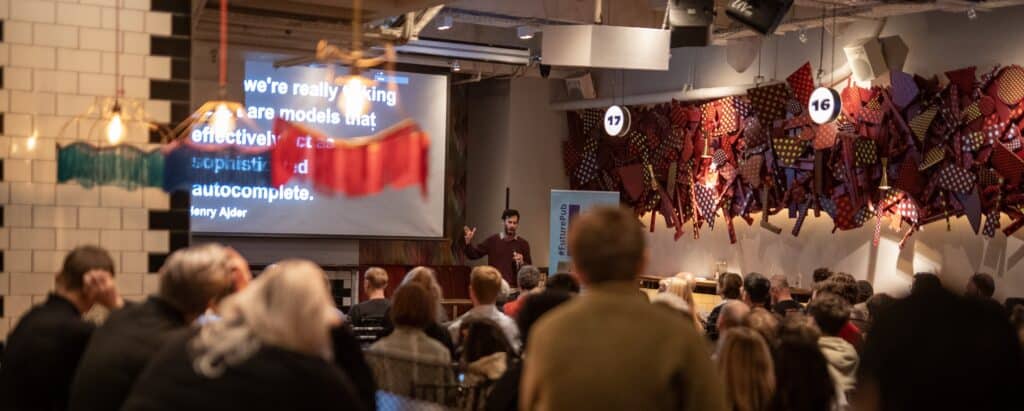
Our final speaker of the evening was Carl Miller, founder of the Centre for the Analysis of Social Media at Demos, who has recently recorded a new podcast series for Intelligence Squared entitled “Power Trip: The Age of AI“.
Carl opened with an observation that the sudden explosion in the use of generative AI has left a lot of us feeling like deer caught in the headlights; we’re not really sure what’s happening, where we should turn, and whether we need to get out of the way or not!
He then dived into the question of how power is changing in AI – across the tech itself, as well as in society, geopolitics, governance and humanity. His slides featured quotes from the people he’d spoken to during the podcast series, and he used those to give a very lively and emotive talk which helped bring a final burst of energy into the room just in time for all the discussions and conversations which followed the talks!
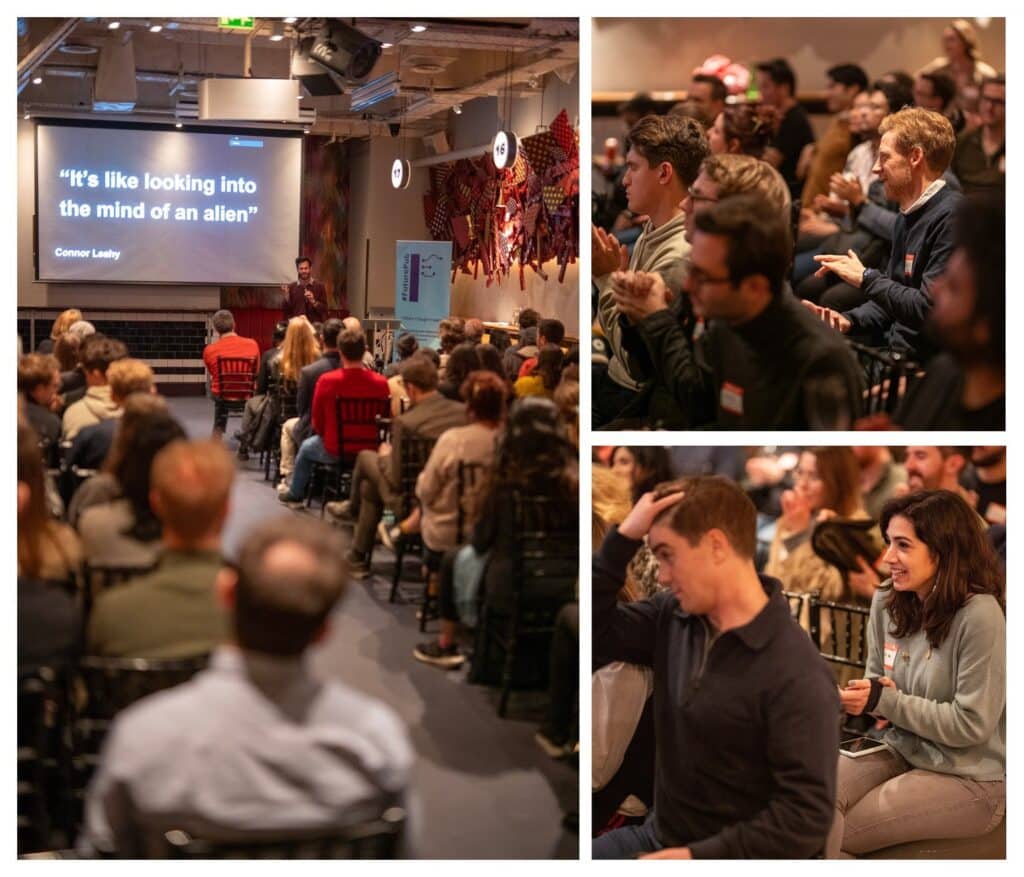
You can find Carl’s podcast on the IntelligenceSquared website, and if you’d like to know more about his recent work you can find details here or on his personal website.
Pizza and ping pong
Once the talks were finished, the pizzas came out and the conversations continued. We’d like to thank Khai, Rachael, Angela and the whole team at Bounce in Farringdon for keeping the drinks and mocktails flowing and the pizzas going. You helped fuel some amazing conversations!
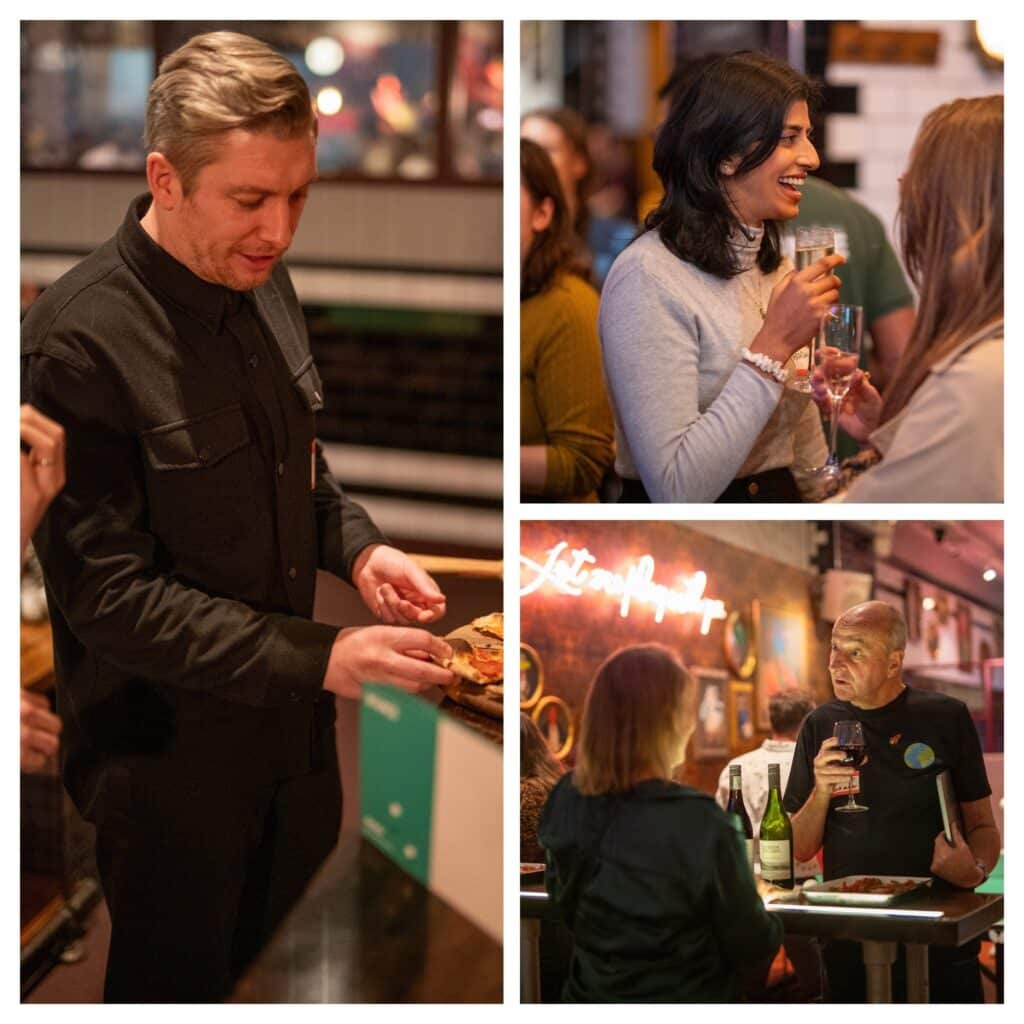
As our final speaker was finishing up, the Games Gurus at Bounce were also preparing for some light-hearted competitions on the ping pong tables. I believe Michelle was in the lead on most of the games come the end of the evening, but it was a close run thing!

There was also plenty of chance for games outside the “official” competitions – including the match of the night, Figshare’s Mark Hahnel taking on Daniel Hook of Digital Science.
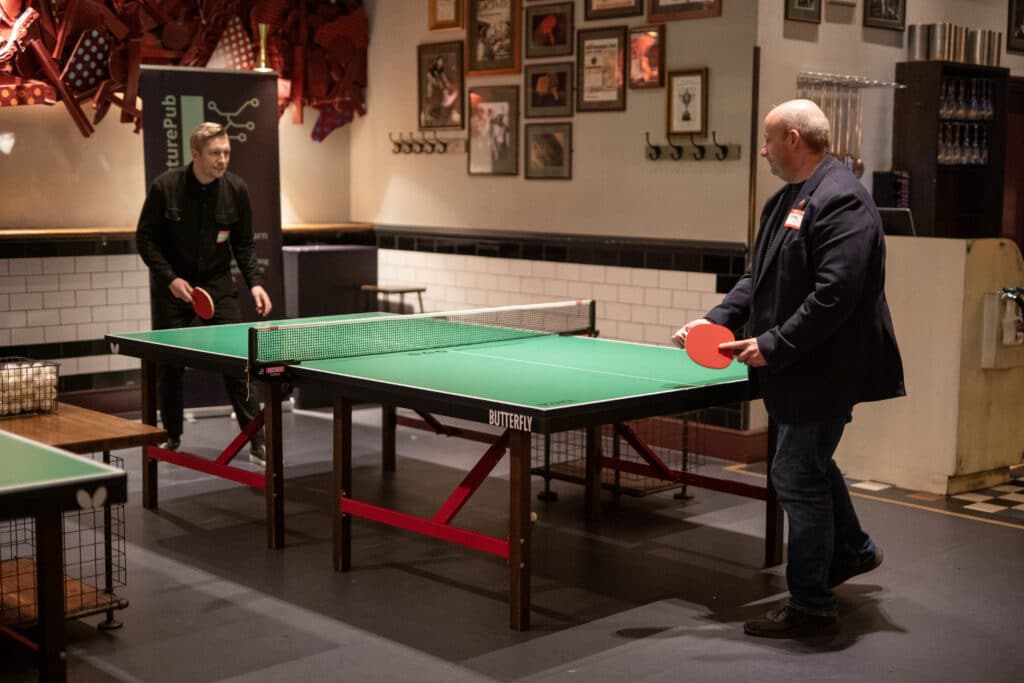
Mark clearly enjoys his ping pong – after a game against Daniel, he squared up against Ian Mulvany, and… well, Ian says it best himself…
“Figshare founder Mark Hahnel whipped me good at table tennis. 11 – 4. I got some good shots in, but I mean, 11 – 4.”
Ian Mulvany[1]
…but Ian didn’t let it spoil his enjoyment of what really was a fun, stimulating evening!
“It was a great event, if you get a chance you should make it to one in the future.”
Ian Mulvany[1]
Photo Gallery & Videos
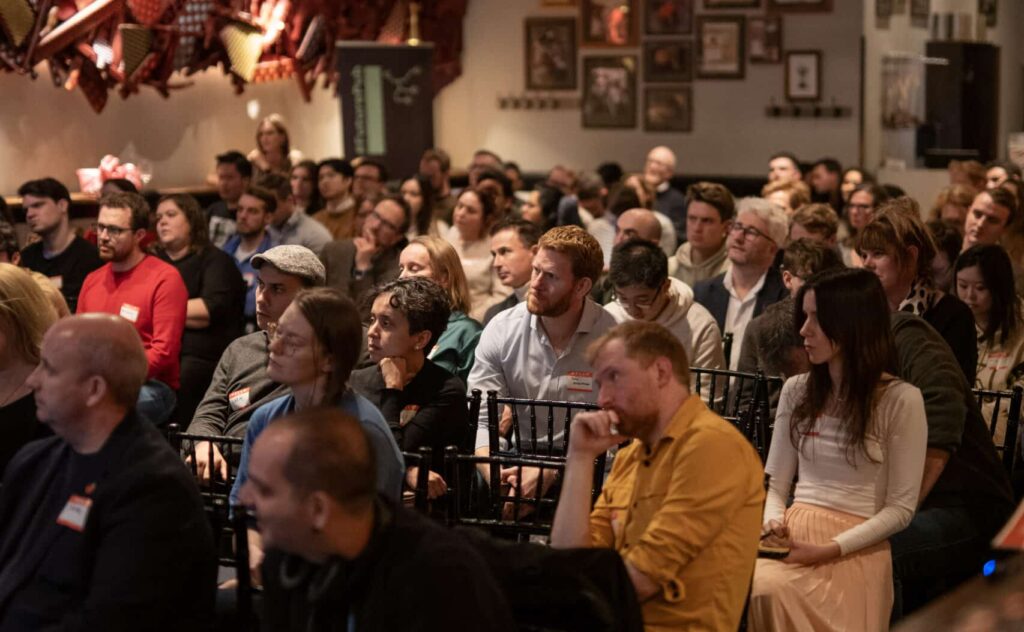
A photo gallery with more shots from the night will be available soon, as will the talk recordings, but you can already watch the snapshot video here! Subscribe to the FuturePub Series on Cassyni to be notified when the talk recordings are available! Thanks to Huw James from Science Storylab for capturing the essence of the event so well.
See you next time!
We’re heading to Berlin next week to attend the Falling Walls Science Summit and will be hosting our first #FuturePub Berlin on Monday 6th November at the Hotel Palace Berlin. If you’re in town for that, we’d love to see you there! FuturePub London will return in the Spring of next year – date and venue still to be confirmed.
If you’re keen to bring FuturePub to your town or city, let us know. And if you’re interested in speaking at a future #FuturePub, please do let us know as early as possible by filling out this short proposal form!
References
[1] https://world.hey.com/ian.mulvany/some-thoughts-on-futurepub-october-2023-19e9c2c4

